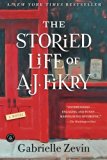Summary | Excerpt | Reviews | Beyond the book | Read-Alikes | Genres & Themes | Author Bio

Because book lovers tend to love bookstores, a novel set inside one is usually a win/win read. Catriona McPherson takes advantage of that probability with her latest novel, Quiet Neighbors. Set in Wigtown, Scotland's National Book Town, it is sure to delight with its great setting and its intriguing plot.
Jude is running away. Her parents' tragic deaths coupled with a floundering marriage is just more than she can take. Recalling a previous trip to Wigtown (see Beyond the Book), Jude arrives there with little more than the clothes on her back. She wanders into Lowland Glen Books because she remembers its inviting atmosphere and the friendliness of its owner, Lowell. Jude can hardly believe her luck when Lowell offers her a job and a place to stay at his own cottage. Nothing romantic, just one sympathetic soul reaching out to another.
Just as Jude is beginning to settle in, a very pregnant young woman named Eddy shows up at the book store claiming to be Lowell's long-lost daughter by a woman with whom he once had a brief affair. In similar fashion to the way he welcomed Jude, Lowell accepts Eddy unquestioningly. He moves her into Jude's space in his home, and then moves Jude into a small cottage nearby. The cottage is located in a graveyard, and the place beckons to Jude. Its quietness and isolation are just what she needs. Only the place is not as quiet as she thinks, and things really start to heat up when Jude uncovers some secrets that should remain buried. Her decision to untangle those secrets could bring things crashing down around her.
Quiet Neighbors has a lot going for it. For one, the novel is set in picturesque Wigtown, a tiny village of bookstores. Like any small town, though, everyone knows everyone else, so no one's business is really private, and some of the residents like to butt in where they are not welcomed. Take for instance the nosey Mrs. Hewston, Lowell's neighbor, who swears she does not judge, but obviously does. When meeting Jude, Mrs. Hewston states, "Galloway attracts runaways…I don't say it in judgment, dear. But when you've been a village nurse like me, you can't help seeing clearly."
McPherson offers up elegant descriptions, too. When Jude sees her new cottage for the first time, there is a description of the graveyard: "As though the rows of gravestones, some of them ancient and wind-scoured, corners softened like half-used soap bars and letters reduced to mossy dents, were not worth mentioning. They leaned like drunks this way and that, several lying flat, passed out; a few were broken where they fell."
Where McPherson's descriptions are engaging, though, her dialogue is often flat. Lowell's speech style is especially problematic. His "my dears" and "oh mys" are repetitive to the point of annoyance. Also, he often trails off without completing a thought, leaving both Jude and the reader in a state of wonder. McPherson peppers the novel with Lowell's indecisive speech, and for some, staying with him will be a labor of love.
Because the novel is classified as suspense, readers will need to be careful not to become discouraged with its pace. The climax builds very slowly, but the last few chapters bring several surprises and answers to tidbits that seemed irrelevant at first mention. The ending is swift, and although the book takes a while to gain momentum, readers should stick it out. Quiet Neighbors does have some quirks, it is an engaging read that most will find worth their time and effort.
![]() This review was originally published in The BookBrowse Review in June 2016, and has been updated for the
April 2018 edition.
Click here to go to this issue.
This review was originally published in The BookBrowse Review in June 2016, and has been updated for the
April 2018 edition.
Click here to go to this issue.

If you liked Quiet Neighbors, try these:

by Stephanie Butland
Published 2018
The Lost for Words Bookshop by Stephanie Butland is a compelling, irresistible, and heart-rending novel, perfect for all book lovers.

The Storied Life of A. J. Fikry
by Gabrielle Zevin
Published 2014
As surprising as it is moving, The Storied Life of A. J. Fikry is an unforgettable tale of transformation and second chances, an irresistible affirmation of why we read, and why we love.
Your guide toexceptional books
BookBrowse seeks out and recommends the best in contemporary fiction and nonfiction—books that not only engage and entertain but also deepen our understanding of ourselves and the world around us.